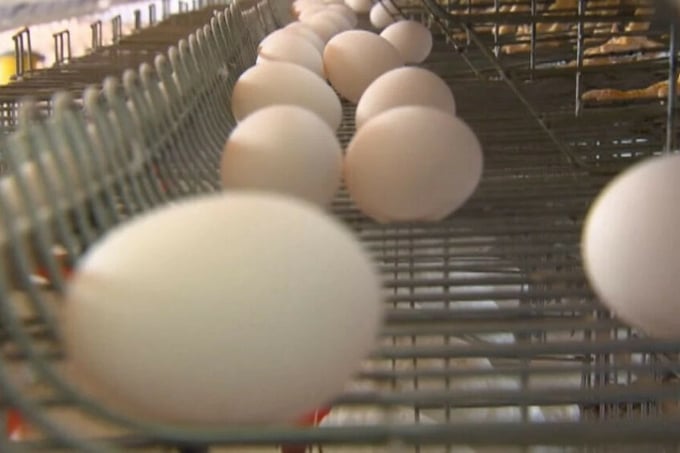May 22, 2025 | 11:01 GMT +7
May 22, 2025 | 11:01 GMT +7
Hotline: 0913.378.918
May 22, 2025 | 11:01 GMT +7
Hotline: 0913.378.918

Granja Faria produces commercial and free-range eggs, fertile eggs, day-old chicks, and specialised incubation services, and also exports to 17 countries. Photos: Granja Faria
Dubbed the ‘Egg King’, Faria now holds the 21st position on the Forbes Brazil ranking, with an estimated net worth of U$3.11 billion.
Faria, an agronomist by training, was born in Rio de Janeiro but built his fortune in Santa Catarina, where his family relocated during his childhood. His entrepreneurial journey began when he was 7 years old with a small ice cream cart business, financed by his father.
After that, he founded Granja Faria, now the largest commercial egg producer in Brazil and one of the biggest in Latin America, headquartered in Lauro Müller, Santa Catarina.
Granja Faria was established in 2006 in Nova Mutum, Mato Grosso, and has since grown into a powerhouse in the poultry industry. The company produces 16 million eggs daily and employs 2,700 people across 34 production units. Granja Faria is also a leader in free-range chicken farming, maintaining a flock of approximately 2 million birds.
The company produces commercial and free-range eggs, fertile eggs, day-old chicks, and specialised incubation services, and also exports to 17 countries.
In addition to his role at Granja Faria, Faria is the president of the Associação Catarinense de Avicultura (ACAV).
His ventures have since expanded beyond poultry – 4 years ago, he founded Terrus, a grain company, and later acquired Fertifar, a fertilizer business, and Insolo, a company specialising in agricultural management for rural properties. All of these enterprises are grouped under the holding RCF Capital.
Granja Faria has also made headlines for its corporate social responsibility initiatives, such as donating 1 million eggs to flood victims in Rio Grande do Sul in May.
(PW)

(VAN) Attempts to bring down the price of the Japanese staple have had little effect amid a cost-of-living crisis.

(VAN) Fourth most important food crop in peril as Latin America and Caribbean suffer from slow-onset climate disaster.

(VAN) Shifting market dynamics and the noise around new legislation has propelled Trouw Nutrition’s research around early life nutrition in poultry. Today, it continues to be a key area of research.

(VAN) India is concerned about its food security and the livelihoods of its farmers if more US food imports are allowed.

(VAN) FAO's Director-General emphasises the need to work together to transform agrifood systems.

(VAN) Europe is facing its worst outbreak of foot-and-mouth since the start of the century.

(VAN) The central authorities, in early April, released a 10-year plan for rural vitalization.